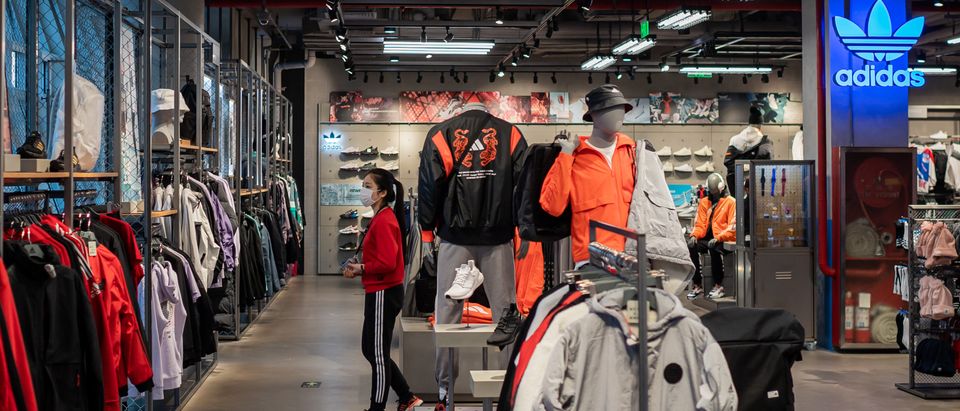More than 180 human rights groups and labor unions have called on major apparel brands to end the use of forced labor in Xinjiang, China — an accusation that the most popular brands, including Nike and Amazon, have denied.
More than 100 civil society organizations and labor unions joined 72 Uighur rights groups in urging brands to cut ties with suppliers that use materials produced in the Xinjiang Uighur Autonomous Region (XUAR), where numerous reports have revealed Uighurs and other Muslim minorities are being forced to work in factories, often also while being being indoctrinated with ideological and behavioral reeducation, Politico reported.
“The Chinese government has rounded up an estimated 1 to 1.8 million Uyghurs and other Turkic and Muslim people in detention and forced-labour camps, the largest interment of an ethnic and religious minority since World War II,” the statement by End Uyghur Forced Labour said.
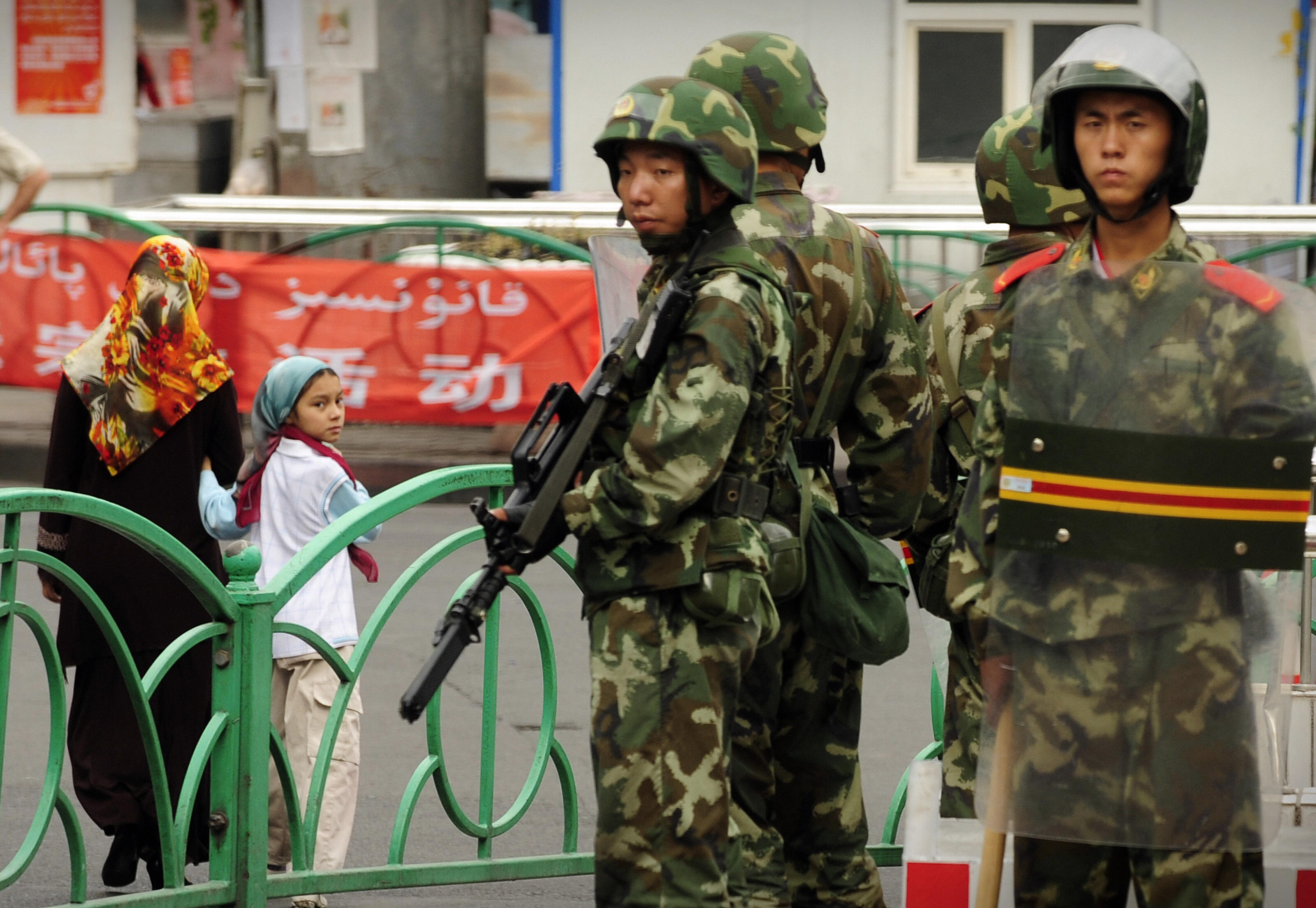
Chinese paramilitary policemen stand guard on a street in the Uighur district of Urumqi city, in China’s Xinjiang region (PETER PARKS/AFP via Getty Images)
The groups are seeking brand commitments to cut all ties with suppliers implicated in using forced labor in their supply chains within 12 months of the request, which was published July 23.
However, nearly every major brand listed on the petition has denied using forced labor in Xinjiang, and some brands have called the reports accusing them of such as being incorrect.
The Daily Caller reached out to several of the listed global apparel companies, including Abercrombie & Fitch, Adidas, Amazon, Gap, H&M, L Brands (the parent company of Victoria’s Secret), Nike, Patagonia, Puma, and Uniqlo. Every brand that responded, except Uniqlo, which did not respond in time for publication, emphasized their commitment to upholding humane labor standards.
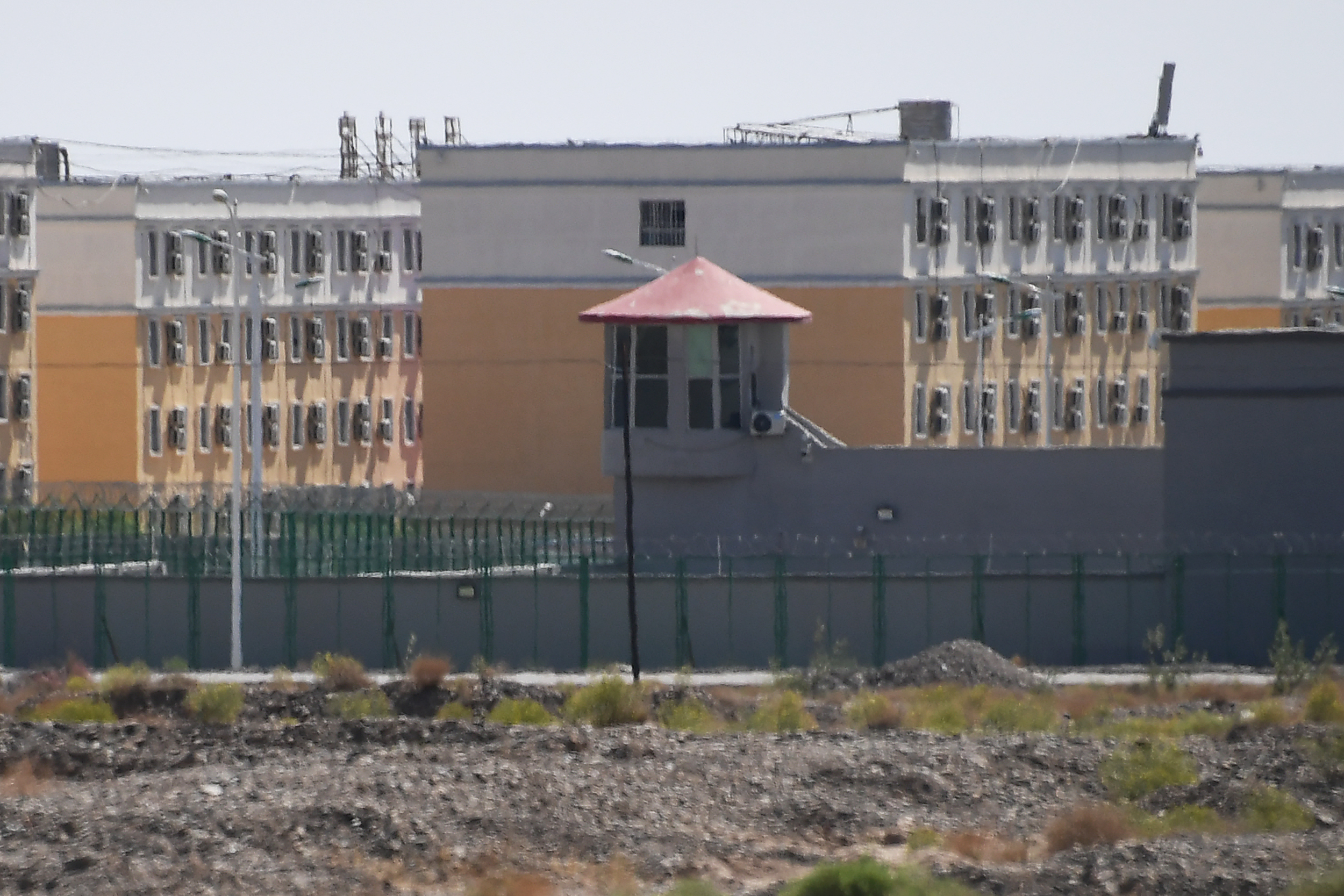
This photo taken on June 2, 2019 shows buildings at the Artux City Vocational Skills Education Training Service Center, believed to be a re-education camp where mostly Muslim ethnic minorities are detained, north of Kashgar in China’s northwestern Xinjiang region. (GREG BAKER/AFP via Getty Images)
“To date we have not found employment of Uyghurs or other ethnic minorities from XUAR elsewhere in China,” a Nike statement reads, while also repudiating a 2020 report by the Australian Strategic Policy Institute that alleged that Nike was among the several companies to use Uighur labor in its supply chain.
In a statement to the Daily Caller, Adidas also denied ever using any goods sources from Xinjiang, claiming the company further instructed suppliers not to source yarn from the region after allegations about forced labor were made in 2019. An Abercrombie & Fitch spokesperson said the company “believes it does not work with any factories” listed in the original report.
H&M, a global fast-fashion brand that has been criticized for enabling the exploitation of workers at supplier factories in Cambodia and India, among others, denied sourcing products from XUAR, but affirmed an indirect business relationship only with yarn producer Huafu’s unit in Zhejiang province.
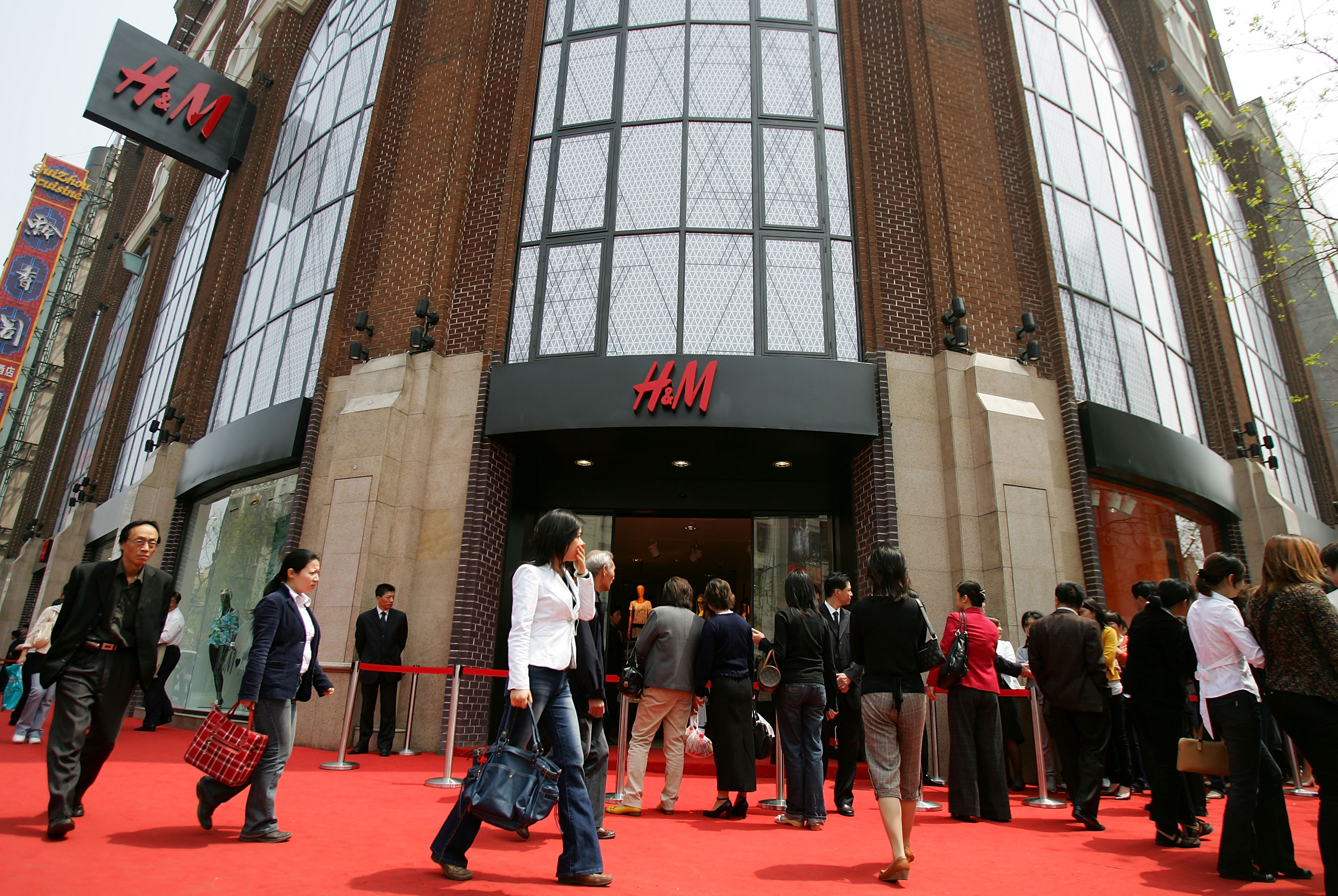
Chinese shoppers wait in line to enter the newly opened H&M store, the first in mainland China, on April 13, 2007 in Shanghai, China. Australian pop singer Kylie Minogue attended the launch. (Photo by Cancan Chu/Getty Images)
The company said they’re reviewing their relationship with Huafu, which has faced scrutiny for acting as a “large-scale vocational training” center shrouded in mystery. A 20-year-old was interrupted by local officials while speaking with the Wall Street Journal about the factory in Aksu, Xinjiang, returning to the conversation and saying that she “used to have extremist thoughts, but now they’re all gone,” possibly reinforcing the belief that such factories are serving as indoctrination camps.
“We do not work with any garment manufacturing factories located in XUAR, and we do not source products from this region,” H&M told the Caller.
Huafu is billed as the world’s largest mixed-color cotton yarn mill, and Xinjiang is a major hub of Chinese cotton production, attracting many apparel brands to use products sourced in the country. China produces 22% of global cotton supplies according to the Center for Strategic and International Studies, which also reports that 84% of Chinese cotton came from Xinjiang in 2018, the BBC reported.
Some brands, like Puma and Amazon, told the Caller that they have auditing mechanisms in place to assess suppliers to ensure compliance with company labor standards.
Advocates, however, are skeptical of the purported safeguards that are intended to monitor factories. “Major corporations claim not to tolerate forced labour by their suppliers, but have offered no credible explanation as to how they can meet this standard while continuing to do business in a region where forced labour is rife,” the End Uyghur Forces Labour statement says.
Furthermore, audits may not reflect the reality of working conditions given the atmosphere of fear at forced labor factories. “Forced labourers in the Uyghur Region face vicious retaliation if they tell the truth about their circumstances. This makes due diligence through labour inspections impossible and virtually guarantees that any brand sourcing from the Uyghur Region is using forced labour,” Scott Nova, Executive Director of the Worker Rights Consortium said according to the petition.
The first step in cutting ties with companies that use forced labor is to stop sourcing materials like cotton, yarn, and textiles from the Uyghur region, the statement concludes.
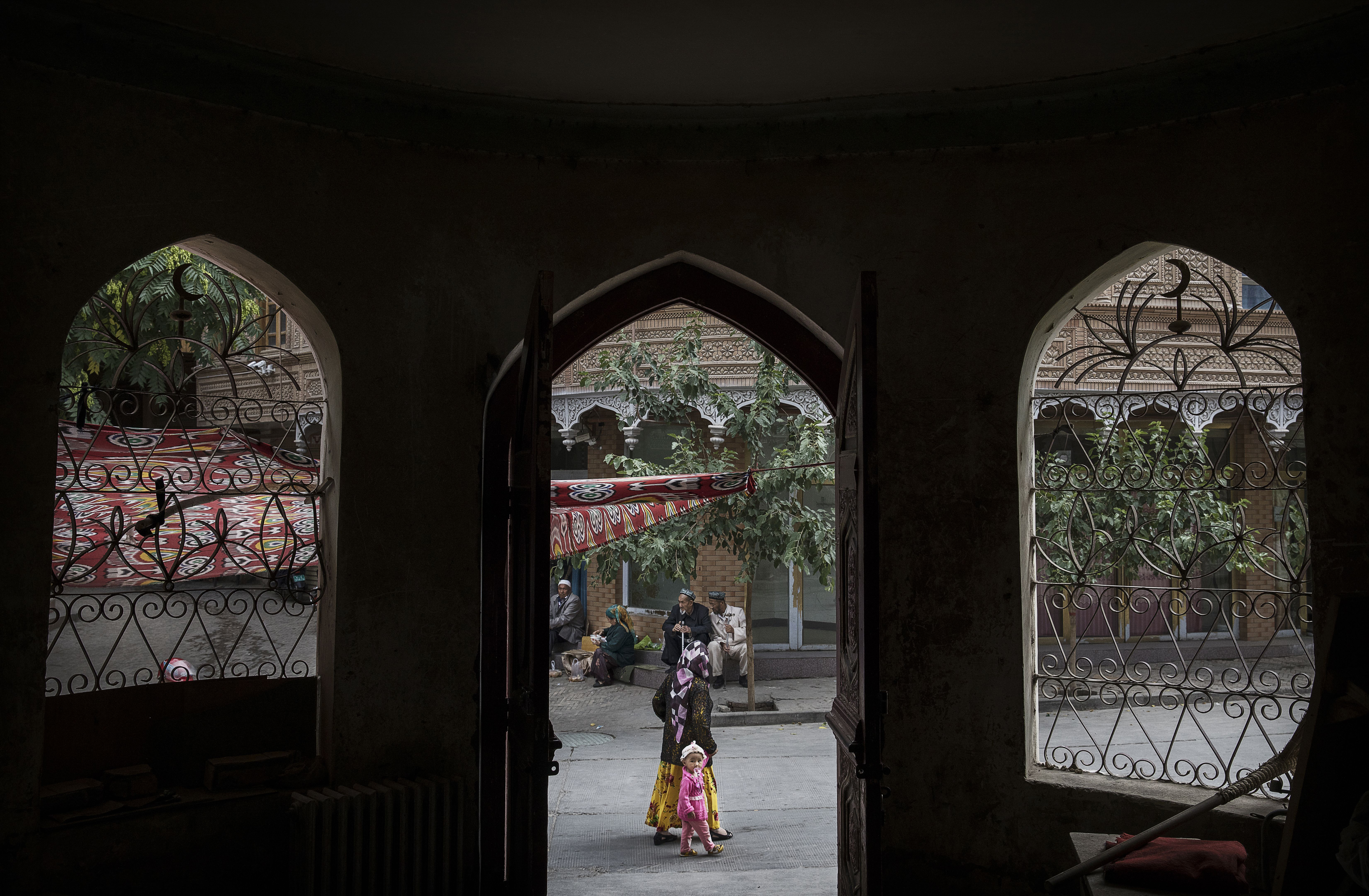
An ethnic Uyghur woman walks by the closed Islamic school on July 1, 2017 in the old town of Kashgar, in the far western Xinjiang province, China. Kashgar has long been considered the cultural heart of Xinjiang for the province’s nearly 10 million Muslim Uyghurs. (Photo by Kevin Frayer/Getty Images)
Tensions between the U.S. and China have continued to grow due to reports of the conditions in Xinjiang along with the national security policy in Hong Kong, which stifles dissent after more than a year of pro-democracy protests.
The Senate passed legislation in May introduced by Republican Florida Sen. Marco Rubio that directs the White House to report within 180 days the identities of individuals responsible for human rights infringements in Xinjiang. Secretary of State Mike Pompeo later announced in July sanctions targeting senior Chinese officials over their authorization of the alleged abuses. (RELATED: Beijing Sanctions US Lawmakers Who Called Out China’s Abuses Against Uighur Population)


